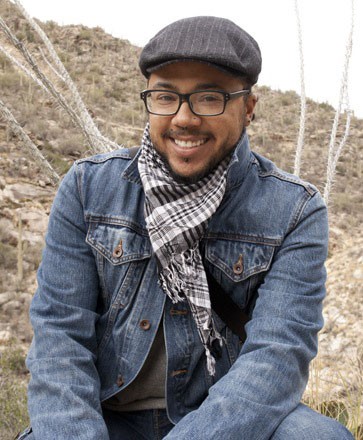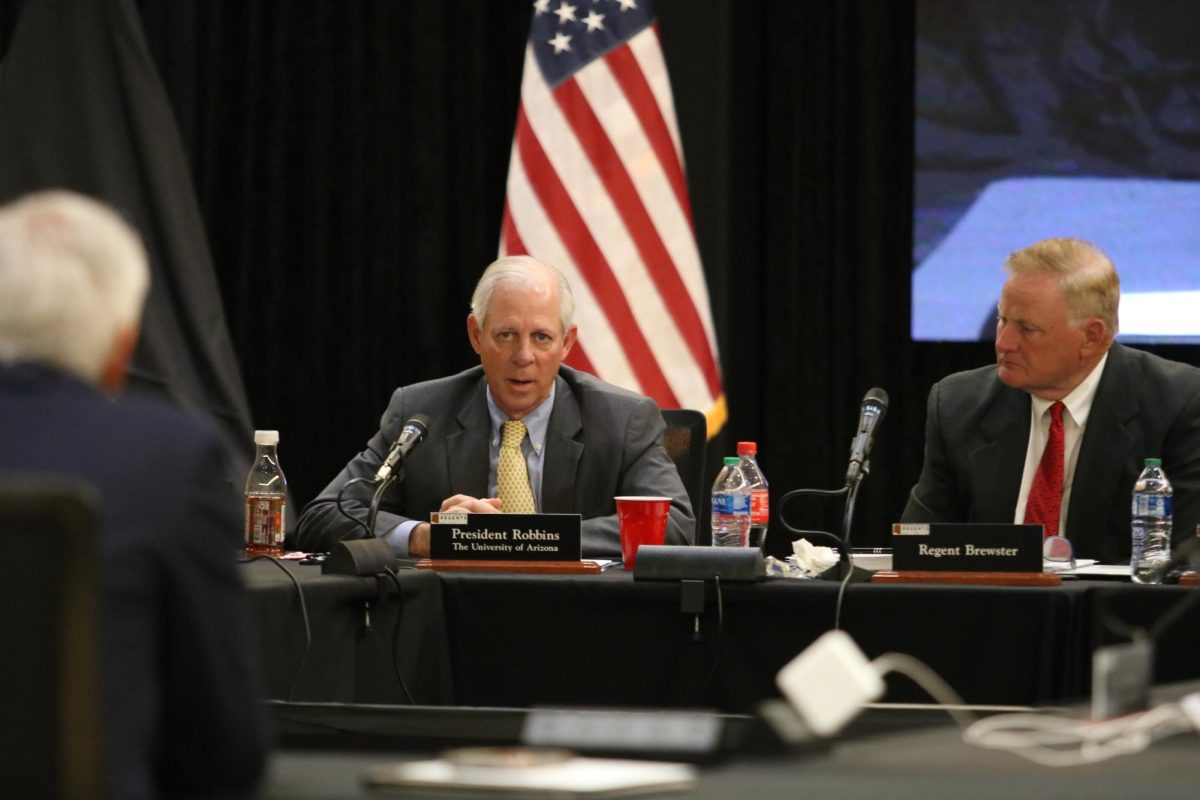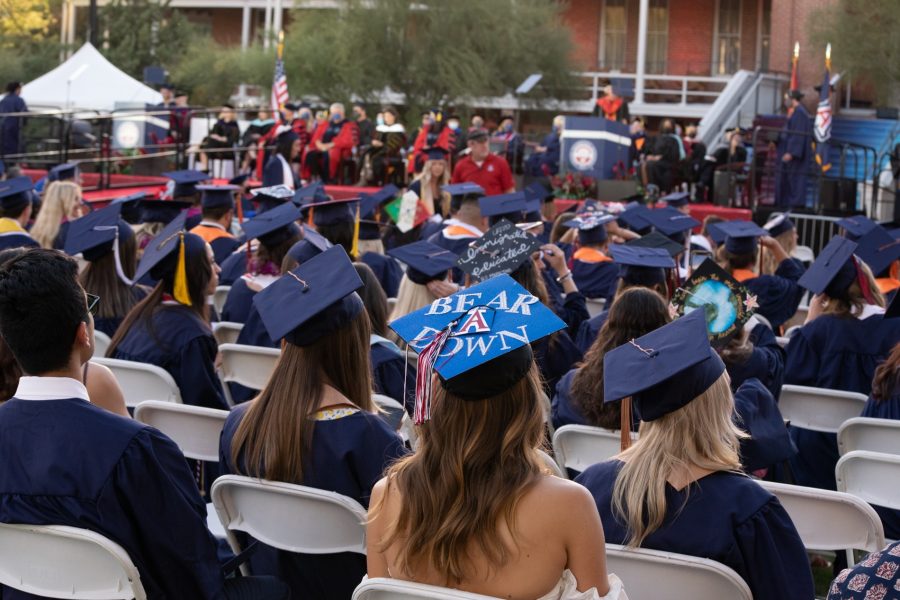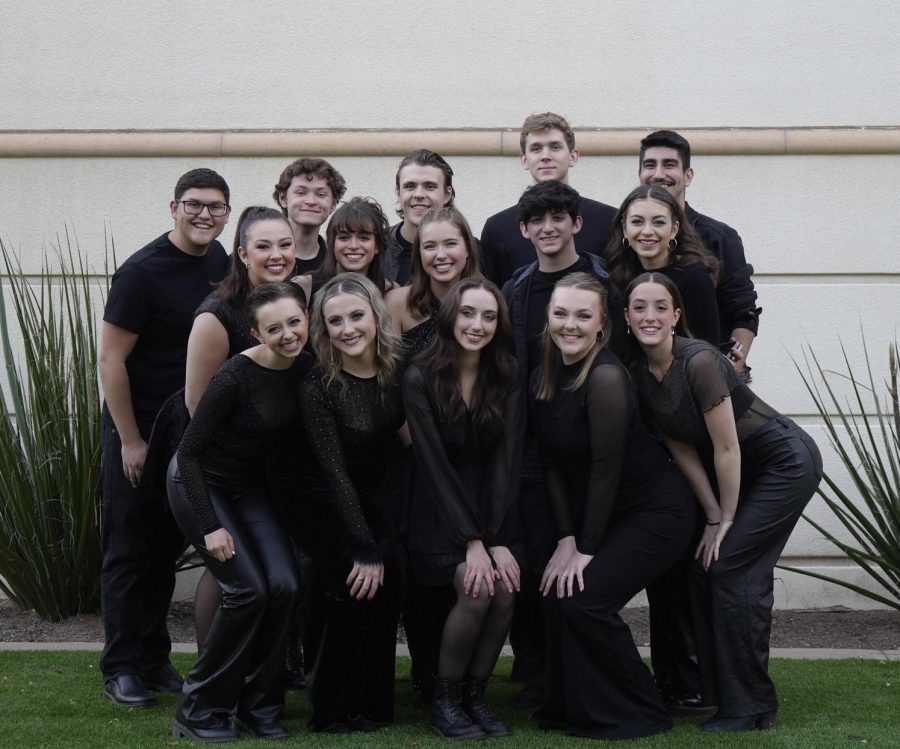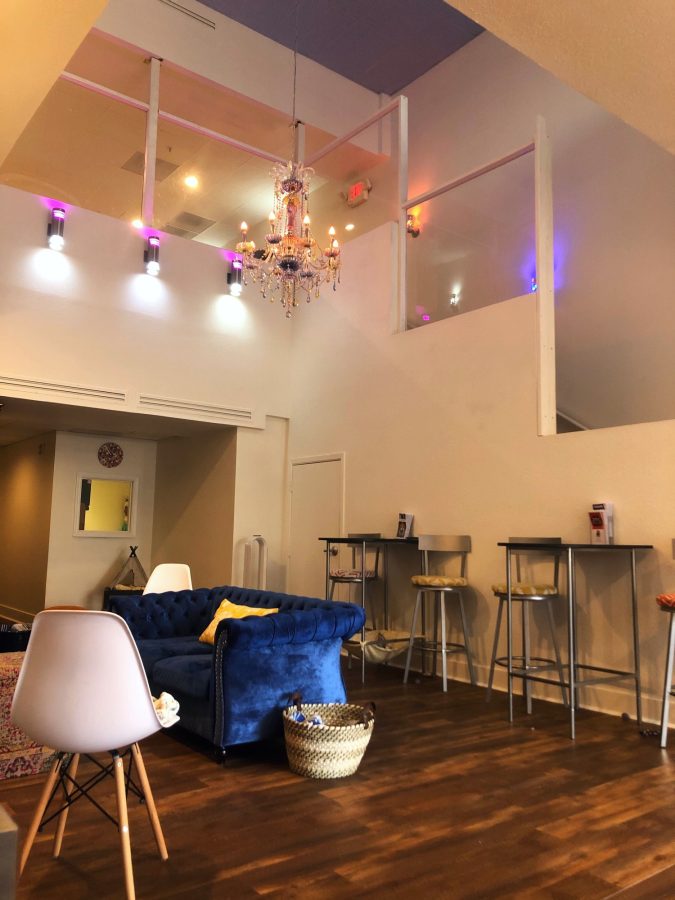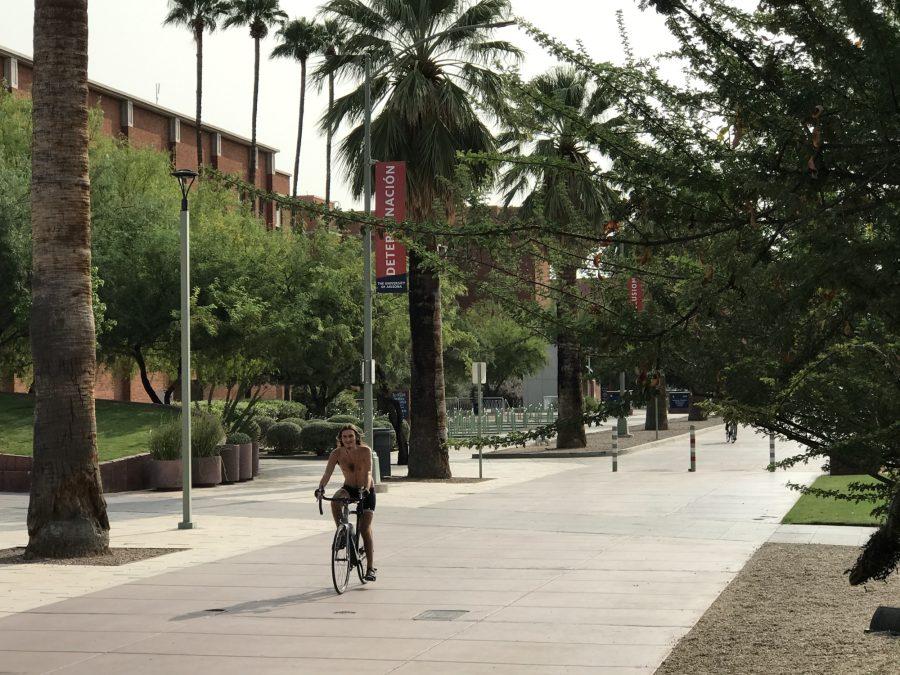Point Foundation, the nation’s largest higher education lesbian, gay, bisexual, transgender and questioning scholarship provider has named two UA doctoral students Point Scholarship recipients.
Mel Ferrara, a gender and women’s studies graduate student who identifies as non-binary and Ian Ellasante, an American Indian studies graduate student with a minor in gender and women’s studies, are the first UA students to ever receive the scholarship.
The Point Foundation, which has awarded over 300 scholarship awards to members of the LGTBQ community and invested over $18 million since 2001, chose 22 students from across the nation to makeup the 2016 cohort.
“I’m very thankful because it’s an incredible opportunity and it’s nice to hear that the work I’m doing is on track and making a difference,” Ferrara said.
Ferrara, who attended Muhlenberg College, began their queer studies and advocacy work in 2011when they co-founded the college’s first Trans Advocacy Coalition.
Ferrara said their research interests are in trans and intersex studies and the medicalization of the body.
“I think that intersex is an area of queer studies and queer activism that sometimes gets dropped off,” Ferrara said. “There’s now a rise of trans stuff in terms of mainstream LGBTQ, but even more so intersex is often not even talked about at all.”
With the Point Foundation, each scholar is given a mentor to offer support and guidance, and is required to complete a community engagement project each year.
“Point really tries to create a community that extends the life of the scholarship, so even after scholars graduate and go into their respective careers they still have friends and community from the Point family,” Ferrara said.
Ellasante said it’s nice to be plugged into a supportive community full of LGBTQ change makers from across the country.
“It’s a huge honor to be chosen and it matters that there’s recognition out there for those of us who are out in the LGBTQ community,” Ellasante said.
Ellasante, who has been working in the Tucson community for over eight years, hopes as a Point Scholar to continue raising awareness about the disparities LGBTQ youth face.
“Despite the strides that have been made in the last few decades, there’s still a lot of stigma and oppression for those of us who are LGBTQ,” Ellasante said. “It’s important for there to be national organizations at the forefront affirming our identities and helping us know that the work we do and the way that we live our lives, honestly and openly and with integrity as out LGBTQ people, is valued.”
Ellasante, who began working at Arizona’s first drop-in center for LGBTQ youth in 2008, currently works for the UA Southwest Institute for Research on Women coordinating programs designed to benefit unstably-housed LGBTQ young adults.
“I look at the people I work with — unstably housed LGBTQ young adults — and I know that they have so much in terms of resilience and the integrity to live their lives just as they are without hiding and trying to disguise the fact that they are LGBTQ and I have so much admiration,” Ellasante said.
Ellasante said that admiration fuels his work in trying to break down hierarchies while also affirming LGBTQ young adults.
Both Ferrara and Ellasante have interests in merging scholarship and advocacy with their work and are looking forward to collaboration that comes with having two Point Scholars at the same school.
“I think our specific area work definitely has overlaps, because [Ellasante’s] working with queer homeless populations and queer youth and I’m largely centered in healthcare and queer access to healthcare and inclusion,” Ferrara said. “Obviously when we’re looking at issues of access, homeless populations and queer populations are some of the most disadvantage groups.”
Ellasante said he’s excited to see what it looks like for him and Ferrara, as well as the other’s in their cohort during and after their degrees.
Follow Chastity Laskey on Twitter.



